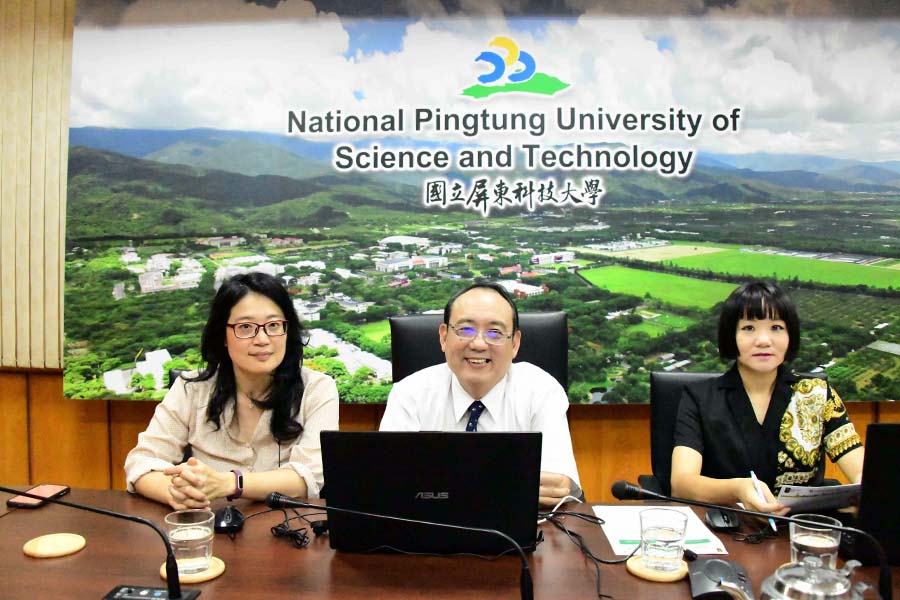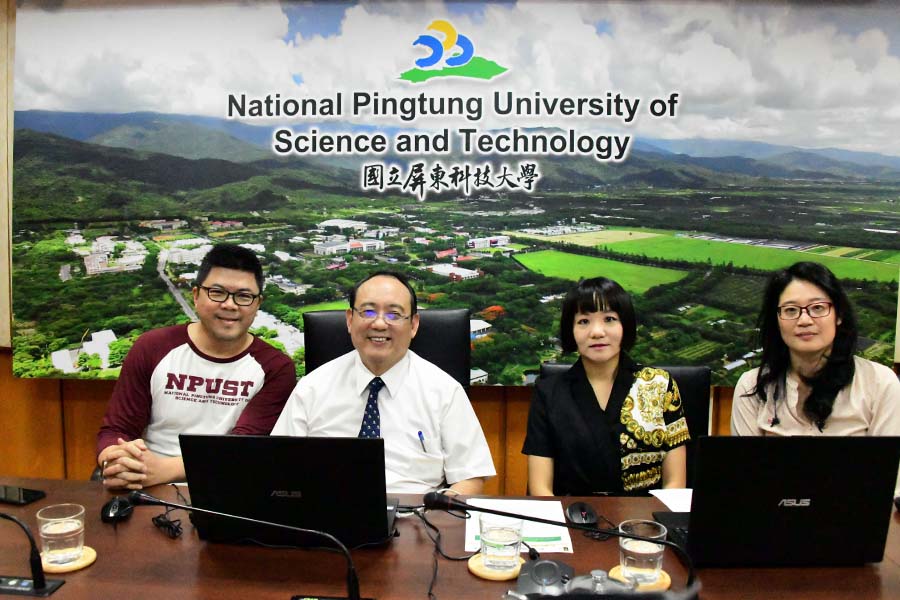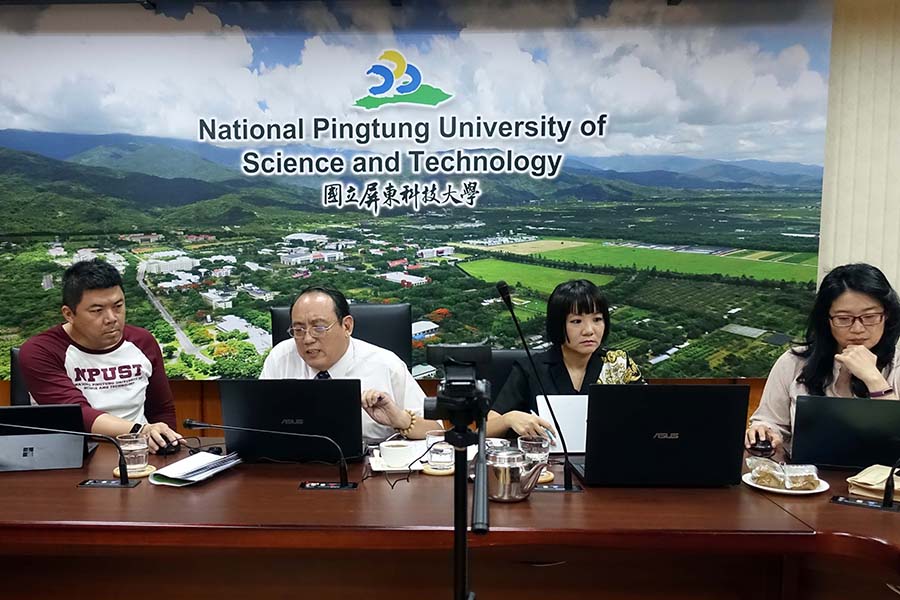From October 12th to 15th (2020), the University of Indonesia “GreenMetric University Ranking Workshop” brought together members from around the world to discuss sustainability and the future of the organization.
Unlike in the past, this year’s annual workshop was not hosted on the campus of a member university – but went virtual instead. Over 600 members from 47 countries joined the grand online event, which was co-hosted by University of Zanjan.
At the workshop, a paper submitted by NPUST entitled “Sustainable Operations and the Development of Circular Economy” was selected for the topical discussions, and university president Dr. Chang-Hsien Tai was invited to speak on NPUST’s “innovation and experience with Green campus facilities”.
On the first day of the workshop, the GreenMetric Secretariat shared an introductory video of all the member universities on its official YouTube channel. On day two, the Steering Committee Meeting was on the schedule, beginning with with remarks by GreenMetric Chair Dr.Riri Fitri Sari, Professor Seyed Mohsen Najafian of the University of Zanjan, and Professor Jamshid Esmaili, the Director General of the Iranian Department of Civil Projects Oversight. During the meeting, attention was given to several items from last year’s meeting at University of Cork (Ireland) before transitioning to the main topics: “The formation of sustainable development in higher education and research”, and “cultivating global leaders in sustainability”. University representatives shared on the sustainability activities that they have been promoting and cooperating with both on- and off-campus and at home and abroad. Finally, attention was turned to the future of the GreenMetric organization, and the idea of a “cooperative online curriculum” was proposed with the aim of strengthening interaction between members.
The Workshop Meeting commenced on October 14th with Professor Hossein Salar Amoli, acting director of the Iranian International Scientific Cooperation Office, providing the introductory briefing—during which he emphasized the importance of sustainable development for future generations. In the following group discussions, NPUST President Chang-Hsien Tai introduced the three main sustainability operations currently underway at NPUST: water conservation, zero carbon emission transportation, and promotional education. These overarching themes, which embody such things as a flood prevention measures, smart irrigation systems, and solar energy installments, offered a clear picture of the continuous efforts NPUST is making in the realm of agricultural and environmental sustainability. On the final day of the Workshop, professor Uzu-Kuei Hsu of NPUST’s newly inaugurated College of Professional Studies represented the university as a co-host to discuss “Innovative Management of Energy and Climate Change”. In the previous rankings, energy and climate change was a category in which NPUST performed less than optimally—and so it hopes that through the discussions and exchanges with other universities, it will to see significant improvement in this area in the year ahead.



